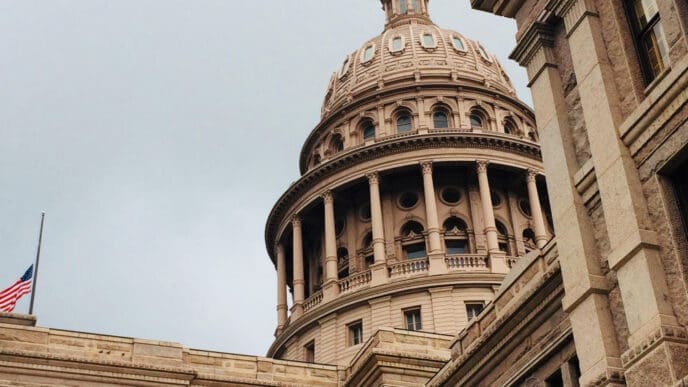A federal judge has permitted the U.S. Department of Justice to temporarily halt funding for legal education programs geared toward individuals facing deportation or immigration court proceedings. This decision, made by U.S. District Judge Randolph D. Moss in Washington, D.C., affects a coalition of nonprofit organizations that provide these services, resulting in the loss of federal funding starting Wednesday. Consequently, these organizations may also lose access to potential clients within detention centers.
In contrast to criminal cases, individuals in immigration courts and detention centers are not entitled to legal representation if they cannot afford it. Advocates of the legal education programs argue that these initiatives alleviate the workload of immigration judges and assist immigrants in navigating the complex legal system more efficiently. Congress allocates $29 million annually for four programs: the Legal Orientation Program, the Immigration Court Helpdesk, the Family Group Legal Orientation, and the Counsel for Children Initiative. This funding is distributed to subcontractors across the nation.
The Justice Department initially instructed nonprofit groups to cease operations on these programs on January 22, following an executive order from President Donald Trump targeting illegal immigration. This order was later rescinded, but on April 11, the Justice Department announced the termination of contracts with these organizations nationwide, effective April 16 at 12:01 a.m.
During a recent hearing, Judge Moss requested further information regarding the Justice Department’s decision to end the contracts, future plans for the allocated funds, and any challenges facing the nonprofits as they continue providing legal information to detained non-citizens. A preliminary injunction hearing and possible final decision are scheduled for May 14.
In New York City, a leader from one of the affected programs testified at a city council hearing on immigration fraud. Hannah Strauss, supervising attorney of the Immigration Court Helpdesk run by Catholic Charities, highlighted the vital role her organization plays in providing initial legal guidance to immigrants. New York state is among only six states where over half of immigrants receive legal representation in pending cases, thanks to state and city grants, alongside volunteer legal professionals. However, federal funding remains a crucial component of this support system.
Strauss noted that the $1.2 million federal grant for New York supported the helpdesk, which is essential for screening immigration referrals and assisting judges in understanding immigration laws. She acknowledged that the termination of federal contracts marks the last operational day for both the Immigration Court Helpdesk and the Family Group Legal Orientation Program.
During the hearing, immigrants shared their experiences, emphasizing that the absence of legitimate legal assistance often leads to falling victim to immigration scams. These scams have been investigated by federal prosecutors, resulting in financial losses and, at times, jeopardizing immigrants’ cases.
The city council also explored strategies to combat fraudulent immigration services, including increasing funding for civil enforcement through the city’s consumer protection department. This department employs investigators, sometimes undercover, to identify violations that can lead to civil penalties or criminal prosecution referrals.
Impact on Daily Life
The suspension of federal funding for legal education programs may have significant implications for immigrants facing deportation and the broader community. Without these programs, many immigrants may struggle to navigate the complex legal system, leading to increased vulnerability to scams and jeopardizing their chances of achieving favorable outcomes in immigration court.
For communities, the loss of these programs could result in a greater burden on state and local governments to provide support, potentially stretching already limited resources. Legal professionals and nonprofit organizations that rely on federal funding may need to seek alternative funding sources to continue offering vital legal education services. This disruption may also affect the efficiency of immigration courts, as the absence of these programs could slow down proceedings and increase the workload for judges.
Overall, the decision to halt funding for these programs underscores the challenges faced by immigrants in accessing essential legal support and the potential ripple effects on communities striving to assist those in need.












